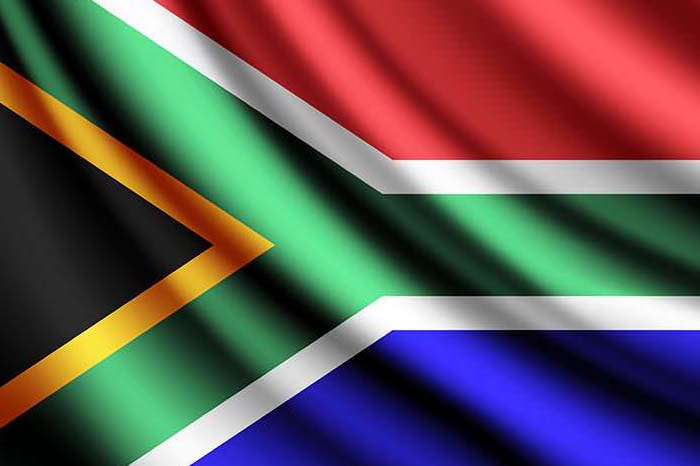The ICJ today called on the South African government to take immediate measures to prevent, investigate and bring to justice those responsible for all discriminatory violence that has occurred in the country, particularly against people based on nationality or national origin.
The authorities should make clear that the rights in the South African Constitution’s Bill of Rights and under international law apply to everyone in South Africa and to take demonstrable measures to protect everyone in South Africa from violence, including discriminatory violence, such as targeted xenophobic violence.
“The hard-fought rights in the Bill of Rights of our Constitution apply to everyone who lives in South Africa without exception. Whatever concerns people have must be resolved through listening and through dialogue. The prevailing violent attacks which seem to target people because they are not South African are cruel and inhuman. They can never be justified and must be condemned in the strongest terms possible”, said ICJ Commissioner Justice Yvonne Mokgoro, a former judge of the South African Constitutional Court.
The ICJ further called on the African Union Member States to take immediate measures to stop the retaliatory attacks against South Africans and South African groups and businesses in those countries where they have taken place, including the Democratic Republic of Congo and Nigeria.
“The current xenophobic attacks in South Africa targeting African immigrants as well as retaliatory violence against South Africans living in the affected African countries is highly regrettable. We call upon the leadership of the affected countries to exercise maximum restraint. We further urge them to take urgent measures to guarantee the security and rights of all immigrants and minorities within their borders, as they are duty bound to do so, under their constitutions and instruments against all forms of discrimination and xenophobia”, said ICJ Commissioner Justice Kathurima M’Inoti of the Kenyan High Court and Director of the Kenyan Judicial Education Institute.
The call by the ICJ comes after South Africa experienced a week of widespread looting and attacking of businesses, perceived to be owned by foreign nationals that saw at least 10 killings and many others injured and displaced from homes. The violence began in Jeppestown, a Johannesburg suburb, on Sunday evening and spread to other parts of Johannesburg including the Johannesburg CBD, Malvern, Tembisa, Alexandra and Katlehong.
The ICJ recalls that the African Charter on Human and Peoples Rights, the International Covenant on Civil and Political (ICCPR) and other universal and African regional human rights treaties to which South Africa is party, require that the rights be guaranteed equally to all persons without regard to citizenship or other status.
This is not the first time that South Africa has been gripped with xenophobic attacks. They have occurred periodically and with impunity over the past decade, with spikes in 2008 and in 2015. In 2008 more than 60 people were killed in a wave of violence against foreign nationals. Another significant flare of xenophobic violence also occurred in 2015 receiving widespread civil society condemnation and response though the perpetrators of such violence operated with some degree of impunity. Civil society will once again proceed with a mass protest on the 14th of September in strong opposition to the increasing climate of fear and xenophobia.
“Impunity for acts of violence, particularly xenophobic violence, is a matter of extreme concern. As a Zambian professor teaching at a leading university in South Africa, I am fearful of the lasting impact that continued xenophobia in South Africa has on the human rights of everyone especially non-nationals living in the country. These xenophobic attacks have the potential to destabilize the unity of Africa around human rights values and create a spiral of violence and impunity across the continent. Xenophobic violence is a threat to the observance of human rights on the continent.” said ICJ Commissioner and Professor Michelo Hansungule, of the Centre for Human Rights at the University of Pretoria.
A number of African countries, including Tanzania, Mozambique, Zambia and Nigeria have responded strongly to such xenophobia, including by suspending flights to South Africa and boycotting South African based events, illustrating the seriousness of the xenophobia. Though the South African government has previously presented such incidents to the world as isolated instances of naked criminality without discriminatory intent, in this instance South African Foreign Minister Naledi Pandor has said that “Afrophobia” can no longer be denied.
In responses to violence in South Africa, in Nigeria, protesters in Lagos and Abuja have targeted South African businesses, some hurling rocks and burning tyres outside their premises, with some explicitly indicating that the acts are retribution for violence against Nigerians in South Africa. In the Democratic Republic of the Congo, protesters also attacked and looted South African-owned businesses, some going on to attack the South African consulate in Lubumbashi. Read the full story here: South Africa-surge in xenophobia-news-webstory-2019-ENG
Contact Details:
Arnold Tsunga (Director): c: +26 37 7728 3249 e: arnold.tsunga(a)icj.org
Solomon Ebobrah (Senior Legal Adviser): c: +23 48 0349 27549 e: solomon.ebobrah(a)icj.org
Tim Fish Hodgson (Legal Adviser): c: +27 82 871 9905 e: timothy.hodgson(a)icj.org




